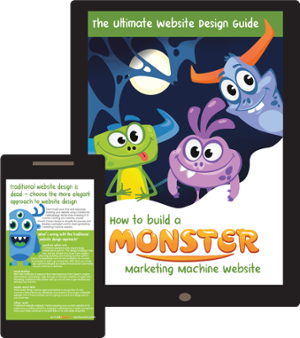A week ago? A month ago? A year ago? Longer?
In a modern world where most purchase choices begin with an internet search, it’s essential that you update your website on a regular and structured basis to make sure that your visitors have up-to-the-minute information and superior content to connect with.
Regrettably, for many businesses, there is an almost intrinsic phobia with regards to updating a website; they understand how much time and stress simply developing a website can be, so to refrain from the perceived ‘intricacies’ of continuous website development, they generally do nothing at all after the website is launched. Which in their minds it’s complete!
For these individuals, the difficult and most important work has been done. The instant the website is live, the business owner, declares it so. Everyone concerned is probably happy to see the back of that project.
But a website is by no means 'finished' - putting a website live is just the beginning of what should be an ongoing development process, a development process that will help to improve the website in the eyes of Google that love fresh content and raise the business’ online profile, both of which will improve organic traffic and lead generation in the long term.
You should be continually updating your website
Building a website to simply let it sit static for a couple of years before updating once more, is not just a waste of your time and money that you invested in the beginning, it’s also a squandered business opportunity.
There’s absolutely no marketing constituent more potent than a website. It typically engages with your prospect’s way before your marketing or sales teams. Consequently, your website is in the most strategically efficient position to propel lead generation for the business.
Nevertheless, whilst your business website is the most effective asset, no body truly wants to look through a website that appears as if it hasn’t been modified for years and hence, websites that haven't been updated for years are less likely to produce leads.
Launching a website is only the beginning.
After constructing your website, you'll want a plan outlining how you are intending to develop your website over the next few months, together with objectives that your teams need to meet. By doing this, you hold your teams accountable and they're able to understand what they have to work towards and accomplish before a certain deadline.
Google loves fresh content. Latest blogs and engaging posts, new web pages and modified content, are much more likely to be relevant and beneficial than something that was composed two years ago. Your website may have been the most enlightening resource two years ago, but it’s content’s value diminishes as time passes, and as its surpassed by more up to date relevant information.
Google's goal is to serve the most relevant and precise search results, so producing new, fresh content is a fantastic way to enhance your website’s ranking and increase organic traffic.
New content also leads to more consistent indexing, which means search engines will crawl your website more often, which will provide you more opportunities to maximise your website’s ranking.
Finally, each page of content you publish is an additional opportunity for your website to be discovered for a specific keyword relevant to your target audience. Try to produce high-quality web pages and blogs targeting specific keywords and topics appropriate for your target audience.
Consider producing topic clusters
A topic cluster is when a single ‘pillar’ page serves as the main hub of content for a specific topic and multiple subpages known as cluster content related to that topic linked to the pillar page.
Here is an example How to Build Your Marketing Machine Using HubSpot
Employing a topic cluster approach, you can develop a "sphere of influence" as you affirm your authority on a specific topic, in the above instance, Building Marketing Machine Websites.
The core topic is wide-ranging, while the subtopics connected to it go into additional detail, helping to answer questions your potential clients have, thus educating them and positioning you as the “font of knowledge”.
If you haven't updated your website in the past three months, it’s probably already outdated.
Some sectors move quicker than others, but an awful lot can take place in three months to render the information on your website outdated.
You don't need to update your website daily but putting a plan in place to make sure your website is at least updated weekly will make sure that it remains relevant.
 How to build a Monster “Marketing Machine” The Ultimate Website Design Guide
How to build a Monster “Marketing Machine” The Ultimate Website Design Guide
The reality is that your company website is your most important resource. To attract new website visitors and convert them into leads, it must be armed with the best tools.




